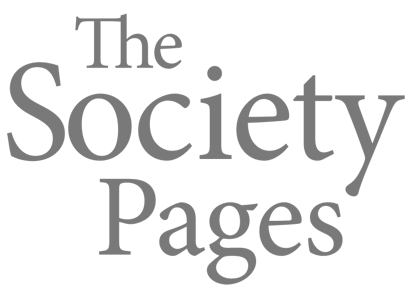Social Studies
MN
A Scholar of the Senses
This piece originally appeared here.
About the Author
What are we without our senses? They are how we see, feel, smell and relate to the world around us.
But what happens when those senses fade, or are lost altogether? How do you walk when you have lost your equilibrium? How do you connect to your family when you lose the ability to hear them?
Peggy Nelson can tell you.
She is professor and former chair of the Department of Speech-Language-Hearing Sciences and is co-founder and current director of CLA’s Center for Applied and Translational Sensory Science (CATSS), which aims to harness the University’s expertise in sensory science to tackle the problems faced by people with sensory deficits.
A lifetime of work
CATSS represents the culmination of a lifetime of work for Nelson, one that began with with a volunteer experience in college. Working with deaf children and children who were hard of hearing, she was moved and challenged. “Seeing that those kids had major gaps in their ability to connect with even their close family members,” she says. “It made me want to learn more about their experiences.”
After graduation, she worked in schools with hearing-impaired children. Eventually she found herself wanting to delve into the research side; she became an audiologist, getting her master’s and eventually her PhD. She came to CLA in 2000, and since then has distinguished herself as a departmental and University-wide leader.
Her research has focused on speech perception and assessing the effectiveness of sensory aids, always hoping to expand opportunities for those with hearing loss. “Throughout my career, I’ve concentrated on what can we do so that every person who has a hearing loss of some kind can have the greatest input to the rest of the world.” She says, “We want a full-fledged, two-way street between the person who has the hearing loss and their environment.”
She has had National Institutes of Health (NIH) funding since 1992, having received a variety of grants, including two different R01 research grants, the original and historically oldest grant offered by the NIH. She has also collaborated with industry leaders, testing prototypes and offering feedback to develop better hearing aids and devices.
Her current NIH grant is focused on an app that will allow people to adjust their hearing aids from their cell phones, using different settings in different environments, from noisy restaurant to quiet room. She explains that even when people have the same degree of hearing loss, their preferences can be vastly different, so this degree of control may increase adoption rates and improve quality of life.
Nelson was named a Scholar of the College in April of this year in recognition of not only her individual research, but also for the vital role she played in co-founding CATSS.
Herding CATSS, a cross-departmental hub In 2011, Nelson came together with Andrew Oxenham from the Departments of Psychology and Otolaryngology, Gordon Legge from psychology, Meredith Adams from the Department of Otolaryngology, Head, and Neck Surgery, and Hubert Lim from biomedical engineering to create a multi-sensory lab. A few years into the lab’s work; however, it was overbooked and work began on creating a full-fledged center.
A year after its establishment in July of 2015, Center for Applied & Translational Sensory Science (CATSS) is fulfilling on its founders’ vision of being a cross-departmental hub. The range of disciplines represented is impressive, with about 15 different groups from four colleges, ranging from psychology to neuroscience and computer science to biomedical engineering.
Its current projects include everything from brain mapping stimulus response in autistic children to studying infrasound (a low-frequency sound that is normally beyond the limit of human hearing) emitted by energy-producing wind turbines. A great deal of their work also focuses on sensory loss associated with the aging process and its accompanying cognitive and emotional implications.
“It could be a balance issue that prevents confidence in mobility and locomotion. If you don’t have confidence in your balance, it also causes anxiety and sleeplessness,” she explains. CATSS is working with experts in aging to help prevent or delay social isolation. “We’re trying to help understand the role of sensory changes with age and issues like depression, and socially withdrawing, loss of connection and communication, and cognitive decline.”
A perfect home Given CATSS’ focus, some might think the center would be better housed elsewhere, the medical school, for instance. But Nelson finds that CLA has been an ideal setting for the center.
“CLA is the group to pull all the different colleges together because understanding human behavior sets the groundwork for everything we do,” she says. “Because, of course, the problem is not just in the ear, it’s in how we learn and use the information. It’s how that hearing loss causes disconnection. It’s understanding the human being as a whole. That’s why CLA is the perfect home for this work.”
With CATSS thriving, there are ever more collaborators and new projects in the wings. Nelson is approaching the age when most people start thinking about retirement, but she feels she has at least one last great mission ahead of her: ensuring CATSS’s sustainability. She notes that as lifespans rise, their work will only increase in relevance.
“CATSS needs to go on, regardless of the duration of any of us. It’s this integrated work that is important. It’s not one of us. It’s the group of us together that are going to be the strength of this. So it’s our goal to keep this center going for decades.”
About Social Studies MN
Social Studies MN is a partnership between the University of Minnesota’s College of Liberal Arts and The Society Pages. We highlight cutting edge research, teaching, and community engagement within CLA, and we hope to showcase such material to viewers like you.

